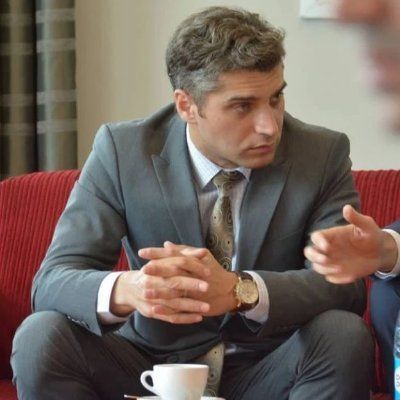September 19 anti-terrorism operation in Garabagh: Changing geopolitics of South Caucasus [ANALYSIS]
![September 19 anti-terrorism operation in Garabagh: Changing geopolitics of South Caucasus [ANALYSIS]](https://www.azernews.az/media/2024/09/02/5ed180537e6dc3f43d4f09094c92b0147ec66bc0.jpg)
Although the Garabagh war started in 2020 after provocative attacks by Armenian armed groups, the conflict in the region ended 3 years later, on September 19, 2023.
A local military operation launched by the Azerbaijan Armed Forces about a year ago was remembered in history as an anti-terrorist measure. In November 2020, the Armenian leadership actually confirmed the fall of the occupying regime in Garabagh by signing the capitulation document. Clause 4 of the November 10 declaration confirmed the complete withdrawal of Armenian armed forces from Garabagh, which is the territory of Azerbaijan – but Armenia refused to comply.
On September 2, 2023, Armenian Prime Minister Nikol Pashinyan ignored the document he had signed as usual and again sent a “congratulatory letter” to the separatist regime (on the 32nd anniversary of the so-called Artsakh), compelling official Baku to take more serious measures. This was not limited to the arbitrariness of the Armenian authorities, even the separatist forces once operating illegally in Garabagh often resorted to provocations and threatened the soldiers of the Azerbaijani army.
Why was the anti-terrorist operation launched on September 19?
The announcement of a cease-fire immediately after the Patriotic War prevented the completion of a number of works. In fact, according to the signed document, Armenian armed groups should have been withdrawn from Garabagh, but the Armenian side tried to gain time by abusing it.
Yerevan hoped that the presence of separatist elements in Garabagh would create an opportunity for them to return. The separatist regime, which tried to involve Russian peacekeeping forces in its provocations, later realised that this was irrelevant. Before the anti-terrorist operations, Armenia first started spreading false statements to the world under the pretence of "blockade". This was a rumour created by Yerevan to gather power internally, and later Baku was able to successfully counter it. A group of separatists who did not accept the humanitarian aid provided by the peacekeepers by placing concrete blocks on Asgaran road soon revealed their nefarious plans.
Although their claim was related to the opening of the Lachin border crossing point, the alternative route offered by Baku on the Aghdam-Asgaran road has satisfied even many international organizations from the point of view of road surface and convenience.
Despite all these alternative proposals, Armenia was worried and considered every option for the separatist regime to remain in Garabagh. Until September 19, a number of footages taken by the Azerbaijani army using a drone confirmed that terrorist groups hiding in the forests in Grabagh had established military posts. A few days before the operation, even a group of Armenian soldiers carrying illegal weapons among the convoys of peacekeeping vehicles was clearly visible in the video shot by the drone.
Legal aspects of September 19 anti-terrorist operation measures
Both the Patriotic War in 2020 and the anti-terrorist operation
on September 19, 2023, are completely legal from the international
law point of view.
Azerbaijan exercised its inherent right to self-defence as
stipulated in Article 51 of the U.N. Charter, leading to the
liberation of territories that had been under occupation for three
decades.
The conflict was brought to a halt on November 10, 2020, with the signing of a declaration, wherein both parties committed to resolving remaining issues through diplomatic means. The primary objective of these diplomatic negotiations was to ensure the full implementation of the conditions outlined in the November 10 tripartite declaration and ultimately secure a comprehensive peace agreement between Azerbaijan and Armenia. These ongoing talks held the promise of entering an era of peace and cooperation in the South Caucasus, marking a significant turning point after years of conflict.
Unfortunately, Armenia, as always, did not comply with the terms of the document it signed. Whether it was the agreement document signed in Prague between Yerevan and Baku on October 6, 2022, or the declaration signed in Alma-Ata in 1991, none of them was of interest to Yerevan. Therefore, this resulted in Baku launching anti-terrorist operations.
Geopolitics of the South Caucasus changed in less than 24 hours
The military operation, which lasted for 23 hours and 47 minutes, culminated in the surrendering of the illegal armed forces and the dismantling of the self-proclaimed administration in Garabagh.
Adding to the legitimacy of Azerbaijan’s anti-terrorist operation, U.S. Secretary of State Antony Blinken personally engaged with President Ilham Aliyev, seeking to understand Azerbaijan’s conditions for halting the operation. This interaction indicated that the operation was being considered legitimate from the perspective of the United States. In summary, the international community’s recognition of Garabagh as Azerbaijani territory, combined with the statements and actions of key political figures and leaders, underscores the legitimacy of Azerbaijan’s anti-terrorist operation in Garabagh in the context of international law.
Azerbaijan's anti-terrorist operation Garabagh also removed the concept of a gray zone that existed in Garabagh for more than 30 years. The aim of turning these areas into a terrorist nest through the patrons of Armenia was also wasted. The September 19 military operation created broad conditions for security, tranquility, and lasting peace in the South Caucasus, both politically and militarily. Although Armenia avoided a peace agreement with Azerbaijan, the conflict that ended in Garabagh has already reduced the impact of the threat in the region. Azerbaijan is as persistent as ever in peace talks, and the next step is Yerevan's.
---
Elnur Enveroglu is AzerNews’ deputy editor-in-chief, follow him on @ElnurMammadli1
Follow us on Twitter @AzerNewsAz
Here we are to serve you with news right now. It does not cost much, but worth your attention.
Choose to support open, independent, quality journalism and subscribe on a monthly basis.
By subscribing to our online newspaper, you can have full digital access to all news, analysis, and much more.
You can also follow AzerNEWS on Twitter @AzerNewsAz or Facebook @AzerNewsNewspaper
Thank you!

